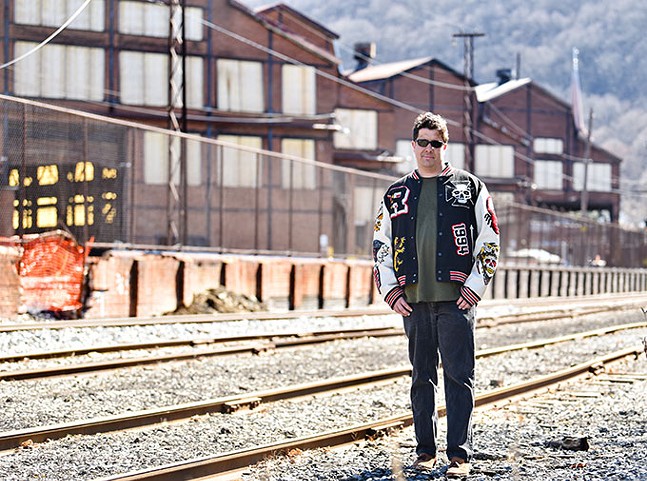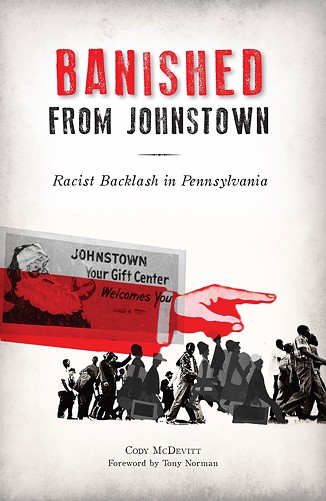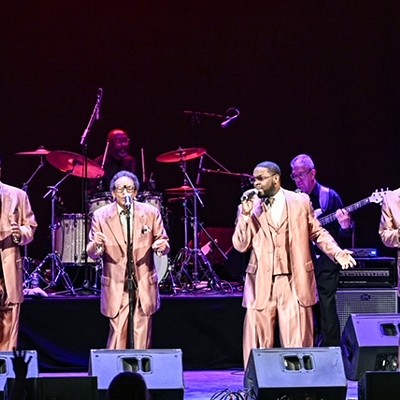After three days of searching through boxes at the Library of Congress, Cody McDevitt, author of Banished from Johnstown: Racist Backlash in Pennsylvania, finally found what he needed on the last hour of the last day that he was there. The box contained documents regarding an official investigation into a 1923 incident by the state of Pennsylvania into actions of Johnstown Mayor Joseph Cauffiel.
Following a shootout with a man named Robert Young that resulted in the death of four police officers, Cauffiel issued a statement in a local paper ordering every Black person who had lived in Johnstown for less than seven years to leave town.
This may seem like an unmissable historic event, but most people's knowledge of Johnstown history is limited to the Great Flood of 1889, which killed around 2,200 people. The forced exodus of an estimated 2,000 Black — and Mexican — residents was once known all around the country, provoking criticism in newspapers as far as Montana and California. But now, the incident is barely known to residents of Johnstown, let alone the rest of the country.
Even McDevitt, whose family has lived in Johnstown for generations, didn’t hear about it until a few years ago when he was looking for a story for the Somerset Daily American. This led to years of research, including the Rosedale Oral History project, which tries to find descendants of the exodus, and eventually, Banished from Johnstown, which includes a foreword from Pittsburgh Post-Gazette journalist Tony Norman and cover art by Alisha B. Wormsley.
“It's a national scandal that embarrassed the whole city and here we are a century later and barely anyone knows about it because no one really talked about it after that,” says McDevitt. “That's kind of the important part of actually remembering and documenting history, is that you forget about instances like this if it's not documented.”
Mayor Cauffiel’s order, which he later claimed was not official, coincided with a rise in Ku Klux Klan activity in Johnstown. The night after the Johnstown Democrat published its article with Cauffiel’s statement telling Black residents to “go back from where they came,” the KKK burned 12 large crosses around the city. Reading about the events in the book, it's hard not to draw parallels to actions by modern white nationalists in response to perceived threats from people of color.
Before they died from wounds several days after the shooting, two officers gave an account that they were attacked by multiple Black shooters with a store of ammunition, when in reality, there was just one. “The Democrat said that crazed white men committed crimes as deadly as Young’s, but that guilt was not prescribed to all white men afterward,” writes McDevitt in the book.
“The fear of people of color committing crimes is something that is deeply ingrained in American history and is something that politicians back then exploited,” says McDevitt. “And it's something that politicians exploit now.”
After their exile from Johnstown, many residents seem to have gone westward, possibly to Pittsburgh or other nearby cities. McDevitt describes the process of trying to find their descendants as “trying to find a needle in a haystack.” But he hopes that the book will educate people in Johnstown and beyond about this piece of history.
The same year as Black residents were ordered out of Johnstown, the same thing happened in Stowe Township, just outside of Pittsburgh.
“Even the fact that this isn't even known in Pittsburgh is something that's kind of troubling,” he says.
















